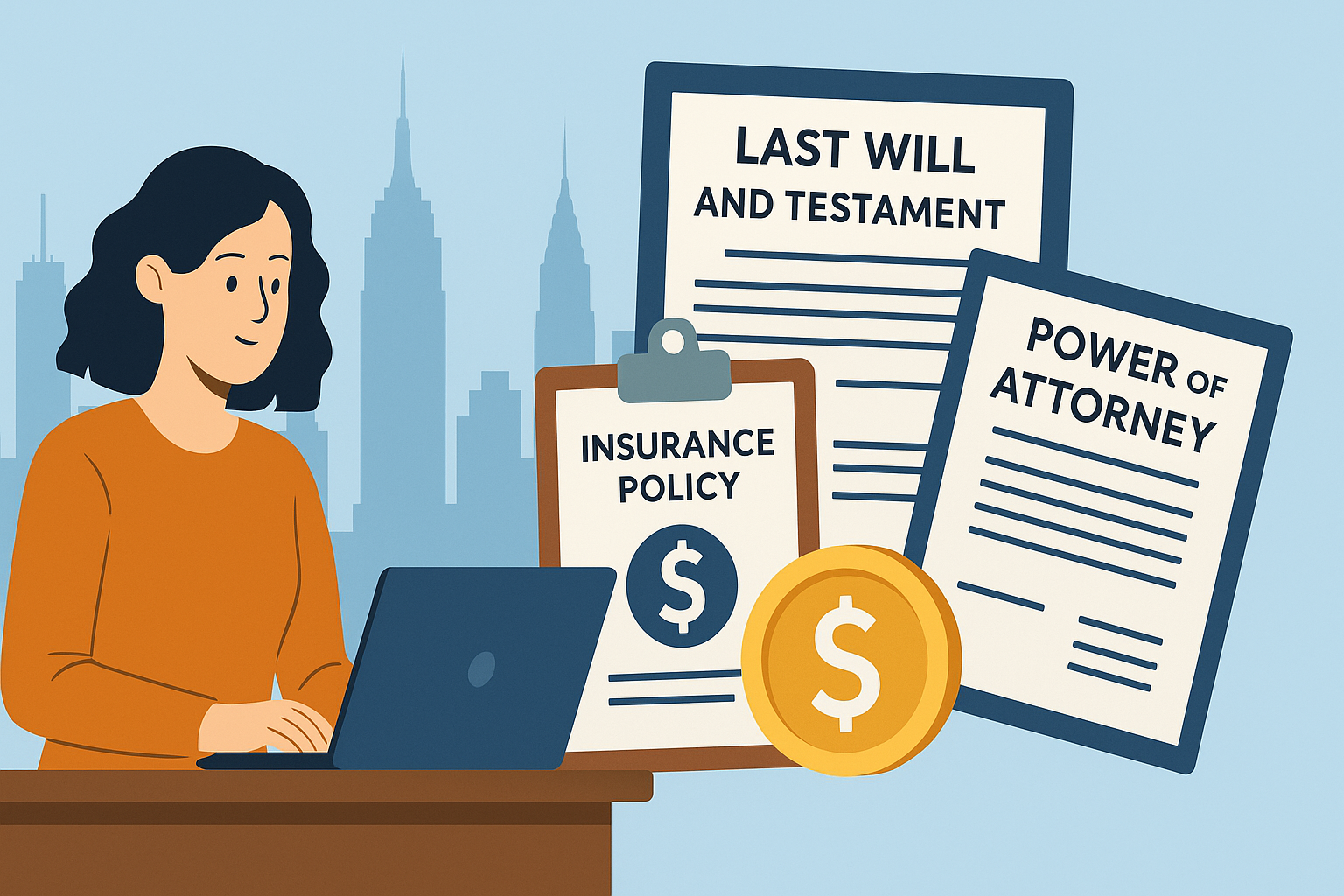As a young professional navigating the vibrant, fast-paced landscape of New York City, your career is taking off, your assets are growing, and your future is brimming with potential. While estate planning might seem like a concern for a later stage in life, establishing a solid plan now is one of the smartest financial moves you can make. It’s about protecting what you’ve worked hard for and ensuring your wishes are honored, no matter what life throws your way.
Why Estate Planning Matters Even Early in Your Career
Many young professionals, including recent graduates and tech employees, mistakenly believe estate planning is only for the wealthy or the elderly. However, life in NYC is unpredictable, and taking early action can safeguard your well-being and assets.
Even if your assets currently consist of a savings account, a burgeoning investment portfolio, or a new apartment, an estate plan ensures these are protected and distributed according to your wishes. Without a plan, New York’s intestacy laws would dictate how your assets are divided, which might not align with your intentions. Beyond financial considerations, a comprehensive estate plan provides peace of mind, knowing that if the unexpected occurs, your loved ones will be spared unnecessary stress and legal complications. It allows you to designate who will make critical financial and healthcare decisions on your behalf if you become incapacitated, a crucial consideration for anyone over 18.
Unique NYC Considerations
New York City presents its own unique set of complexities that necessitate tailored estate planning strategies:
- Rent-Stabilized Leases: A rent-stabilized apartment in NYC can be a highly valuable asset due to the city’s soaring rent prices. Inheriting a rent-stabilized lease isn’t automatic and comes with specific requirements. Generally, a family member must have resided in the apartment with the tenant for at least two years (one year if disabled or over 62) immediately before the tenant’s permanent departure or death to have succession rights. This cohabitation requirement is crucial and evidence like tax returns or a driver’s license can be used to prove residency.
- Digital Assets: In today’s digital-first world, your online presence holds significant financial and sentimental value, from cryptocurrency and online banking accounts to social media profiles and email accounts. New York’s Revised Uniform Fiduciary Access to Digital Assets Act (RUFADAA), enacted in 2016, provides a legal framework for fiduciaries to access and manage digital assets. Your estate plan should include a detailed inventory of your digital assets, secure access instructions, and specific authorization for your chosen digital executor to manage these accounts.
- Co-ops and Condominiums: Unlike traditional real estate with deeds, owning a co-op in NYC means owning shares in a cooperative corporation, along with a proprietary lease for your unit. This distinction significantly impacts estate planning, as co-op boards often have stringent approval processes for the transfer of shares, even upon death. While condo owners have more direct control over transferring title, co-op shareholders often need board approval to transfer shares into a trust or to a beneficiary, which can present hurdles. Working with an attorney experienced in NYC co-op laws is essential to navigate these challenges.
How to Start Small with Essential Documents
Getting started with estate planning doesn’t have to be overwhelming. You can begin with a few fundamental documents that provide significant protection:
- Last Will and Testament: A will is the cornerstone of any estate plan. It allows you to clearly specify how you want your assets—from bank accounts and investments to personal property—distributed to your chosen beneficiaries. For those with (or planning to have) children, a will is critical for appointing legal guardians. Without a will, state law dictates asset distribution, potentially bypassing your loved ones.
- Power of Attorney (POA): This essential document allows you to designate a trusted individual (your “agent” or “attorney-in-fact”) to make financial and legal decisions on your behalf if you become incapacitated. Even as a young professional, an unexpected illness or accident could render you unable to manage your affairs. A financial POA ensures bills are paid, and assets are managed, while a healthcare proxy (a type of advanced directive) grants someone the authority to make medical decisions according to your wishes.
- Beneficiary Designations: Often overlooked, beneficiary designations for accounts like life insurance policies, 401(k)s, IRAs, and other retirement or financial accounts are crucial. These designations dictate who receives the assets directly upon your death, bypassing the probate process, which can save time, money, and stress for your loved ones. It’s vital to keep these designations updated after major life events such as marriage, divorce, or the birth of a child.
Starting your estate planning journey now, even with these foundational documents, provides a robust layer of protection for your assets and ensures your future wishes are respected in the bustling heart of the Big Apple. Consider consulting with an experienced New York estate planning attorney to tailor a plan that fits your unique circumstances and goals.
Sources
This article is for informational purposes only and does not constitute legal or tax advice. Consult a qualified professional for advice specific to your situation.

